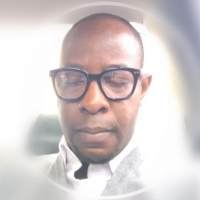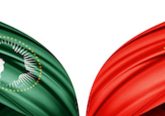Nigeria is Africa’s biggest economy and the most populous black nation on earth. Yet, regional economic inequality and the lopsidedness of Nigeria’s political system have led to a series of protracted conflicts. The country is currently embroiled in crises similar to the tumultuous time after independence in 1960, when regional and ethnic tensions erupted in a vicious power struggle.
Back then, following a coup against the northern-led government in January 1966, thousands of Igbos living in the northern region were forced to flee to their homeland following the outbreak ethnic clashes. In 1967, Odumegwu Ojukwu, an Igbo military officer, proclaimed the independence of Republic of Biafra, leading to Nigeria’s first bloody civil war, which ended in 1970. Over forty years later, desires for a breakaway still linger. Both the Movement for the Actualization of the Sovereign State of Biafra (MASSOB) and the Indigenous People of Biafra (IPOB) aim to restore the state of Biafra and challenge Nigeria’s current political structure.
Despite being a federal republic, Nigeria has a unitary constitutional arrangement in which the federal government wields overarching powers. Like the United States of America, Nigeria is structured as a federation with 36 states, one federal territory, and 774 Local Government Areas (LGAs), including Abuja. However, unlike the United States, the central government controls the revenues and nearly all of the country’s resources, especially oil and natural gas. Revenues accrue in the Federation Account, where it is allocated monthly to the states and the LGAs, by a federal executive body, the Revenue Mobilization, Allocation, and Fiscal Commission (RMAFC).
The political structure has not always been this way. Prior to the creation of the present-day state of affairs in 1967, Nigeria had four regions under the 1963 constitution, namely Northern Nigeria, Eastern Nigeria, Western Nigeria and Mid-Western Nigeria. Without federal government allocation or revenue from oil, export crops were central to shaping the economy of the four regions, and served as the country’s main source of foreign currency. Political federalism reduced the power of the central government.
Thus, national debate and calls for restructuring are nothing new, but they continue to grow amid economic stress, political uncertainty and recurrent violent conflicts across the country. Especially, ahead of the February 2019 elections, the push for restructuring of Nigeria’s political system is gaining momentum. Groups from the south, which have long championed the call for restructuring in defense of regional economic development, are particularly vocal in their demands for upending the current centralization of political power.
One of the leading voices challenging the current political structure is current-president Muhammdu Buhari’s running mate in the 2011 election Tunde Bakare. Bakare emphasizes that the time has come for decentralization to improve regional capabilities and increase local abilities to generate revenues. Currently, Nigeria’s centralization of political power distorts its political economy by encouraging redistribution instead of productivity. By themselves, most of the constituent parts of the country are not economically viable: Nearly 70 per cent of Nigeria’s state revenue comes from an oil-rich region about the size of Ireland.
While there is broad and general support for a new constitution in the south and the middle-belt, the north has a vested interest in maintaining the status quo. Fear that change would lead to political domination and economic collapse in the region has resulted in heightened tensions across country. While the existing constitution is unpopular, especially in the south, rewriting it will not be an easy undertaking. What a new constitution might entail remains controversial and contested.
Yet, restructuring, in the form of political decentralization and a differential economic model, is necessary, if not sufficient, for solving some of the country’s most vexing problems. To create a more economically viable and politically functional country, Nigeria needs to overhaul its political system. While such changes might, in the short term, trigger upheaval, upset entrenched power arrangements, and exacerbate existing tensions, in the long-term, political restructuring would be beneficial for both north and south. As former-president, Ibrahim Gbadamosi Babangida stated in 2017, Nigeria’s future is inextricably linked to restructuring its political system. However, political restructuring will only succeed if pursued in a democratically legitimated, participatory and coordinated manner. That is why the upcoming presidential elections in 2019 are so crucial.





